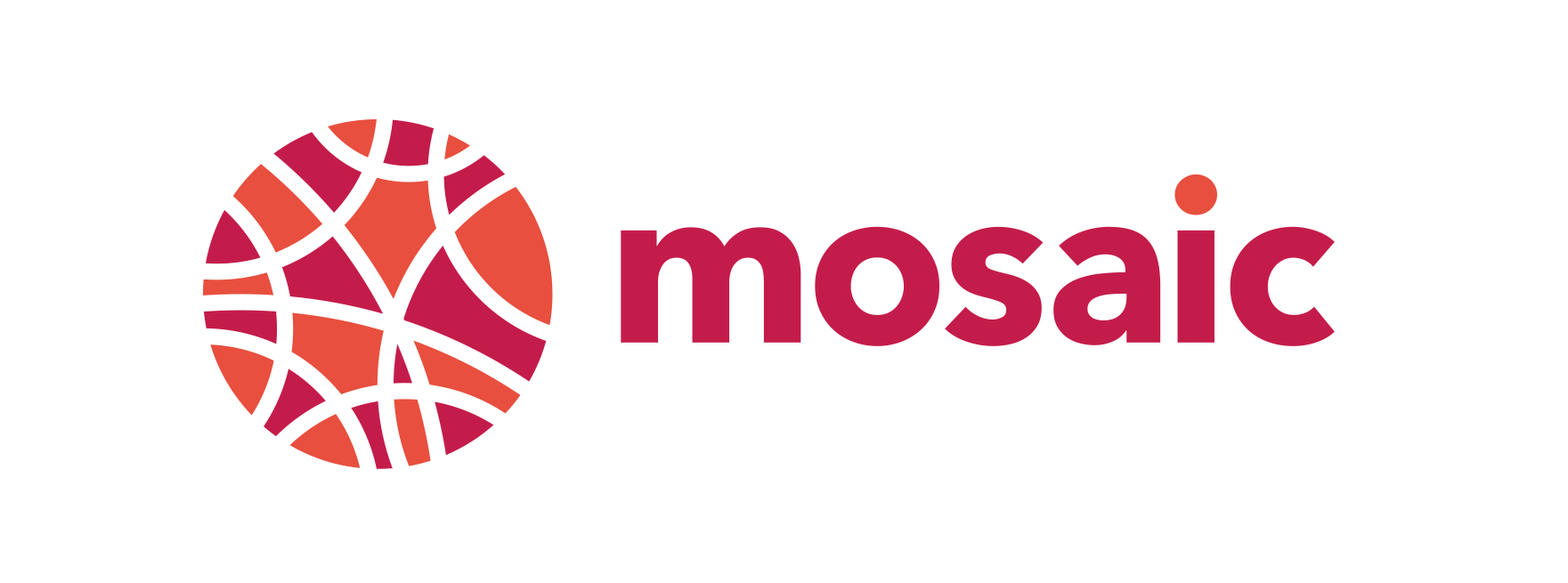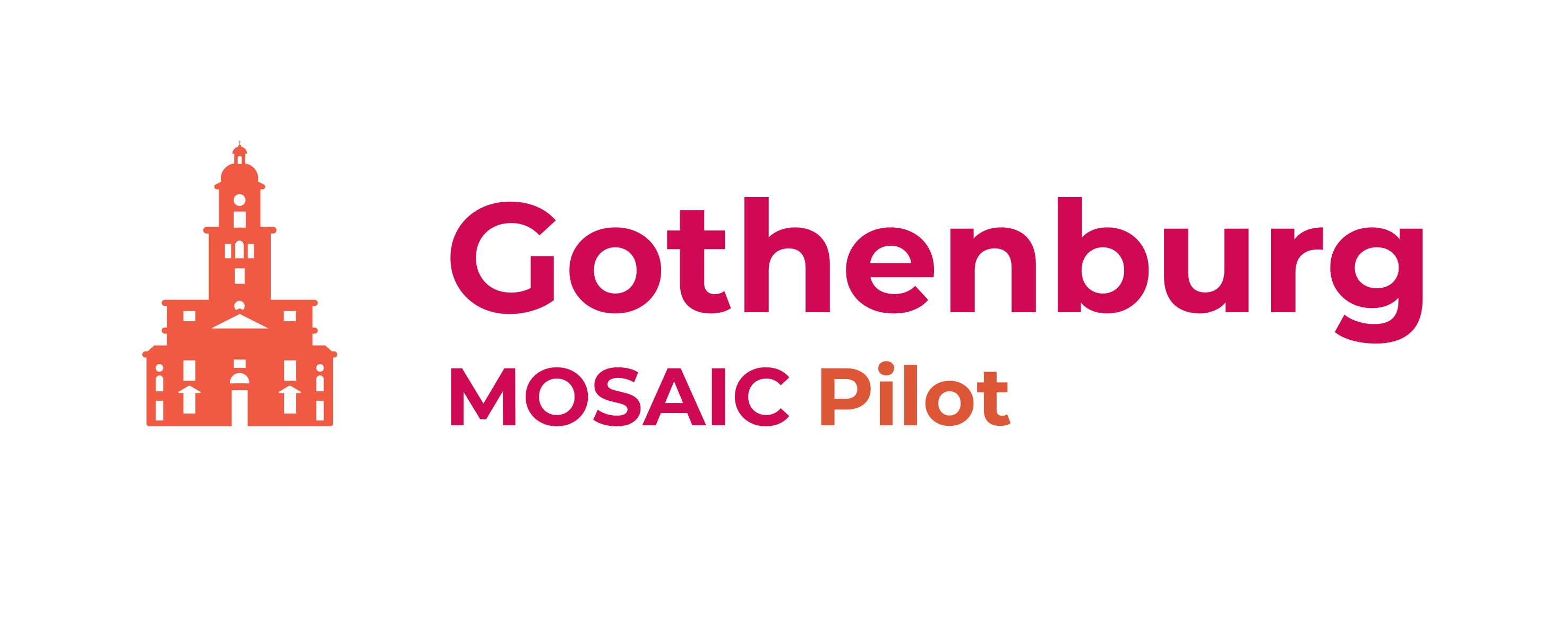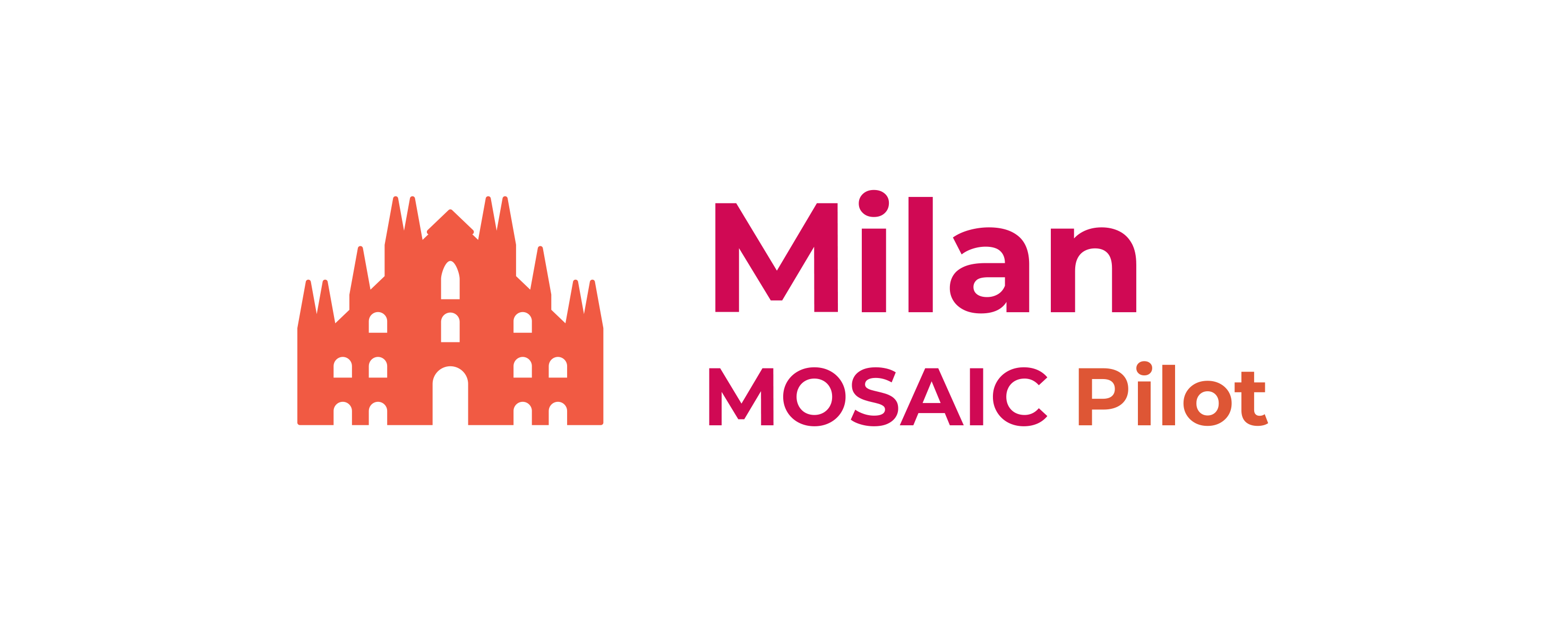Our Pilots
MOSAIC has selected Gothenburg and Milan as pilot cities for testing its methodological approach and research actions throughout the project.
These two cities have been selected as part of the European Commission's EU Mission for 100 climate-neutral and smart cities by 2030, known as the Cities Mission.
The pilot actions in Gothenburg and Milan follow a comprehensive three-step process that involves co-designing local challenges and co-creating solutions. This approach ensures active participation from a diverse range of stakeholders, including representatives from academia, industry, government, and civil society - collectively known as the quadruple helix. By engaging all these stakeholders, MOSAIC aims to foster a collaborative and inclusive environment that leverages the expertise and insights from multiple sectors.
The primary goal of the pilot actions is to address climate-related challenges effectively by co-developing and co-implementing innovative solutions. Through the collaborative efforts of the quadruple helix stakeholders, the pilot cities will generate valuable outcomes and learnings, which will serve as valuable resources for the replication and adoption of MOSAIC's approach in other European cities and regions.
By selecting Gothenburg and Milan as pilot cities, MOSAIC acknowledges the commitment and potential of these cities to contribute significantly to the transition towards climate neutrality and smart urban development. The insights gained from the pilot actions in these cities will pave the way for scaling up MOSAIC's approach, fostering sustainable transformations across Europe and beyond. Learn more about MOSAIC Pilot cities below.
Gothenburg Pilot
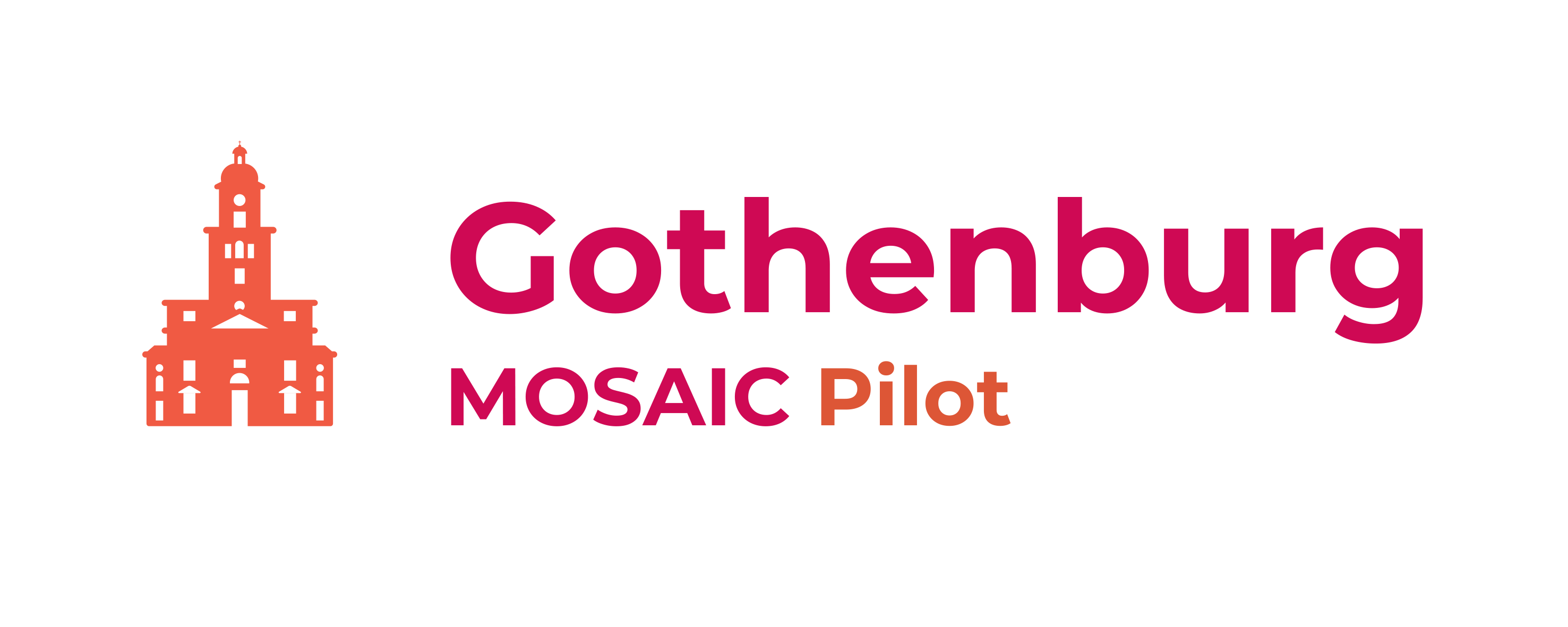
About the city
Gothenburg is the second-largest city in Sweden, the fifth-largest in the Nordic countries, and the capital of the Västra Götaland County. It has a population of approximately 1.1 million inhabitants in the metropolitan area.
Situated on Sweden’s scenic west coast, Gothenburg exudes an open, entrepreneurial spirit with a sustainability ethos that runs through the city’s sights and attractions. Founded in 1621 by King Gustav II Adolf, Sweden’s second city soon established itself as a commercial fishing and shipbuilding hub, and later as a leader in transport innovation. Gothenburg is home to many students, as the city includes the University of Gothenburg and Chalmers University of Technology. Volvo was founded in Gothenburg in 1927 and its headquarters are still located in the city.
In Sweden, 93 percent of the population will live in a city by 2050, which is why cities are so important in dealing with the climate crisis. "We want to act as pioneers in climate change and we have come quite far compared to other cities in Europe, but at the same time there are challenges in Gothenburg as well," says Emmyly Bönfors, chairman of the environment and climate committee.
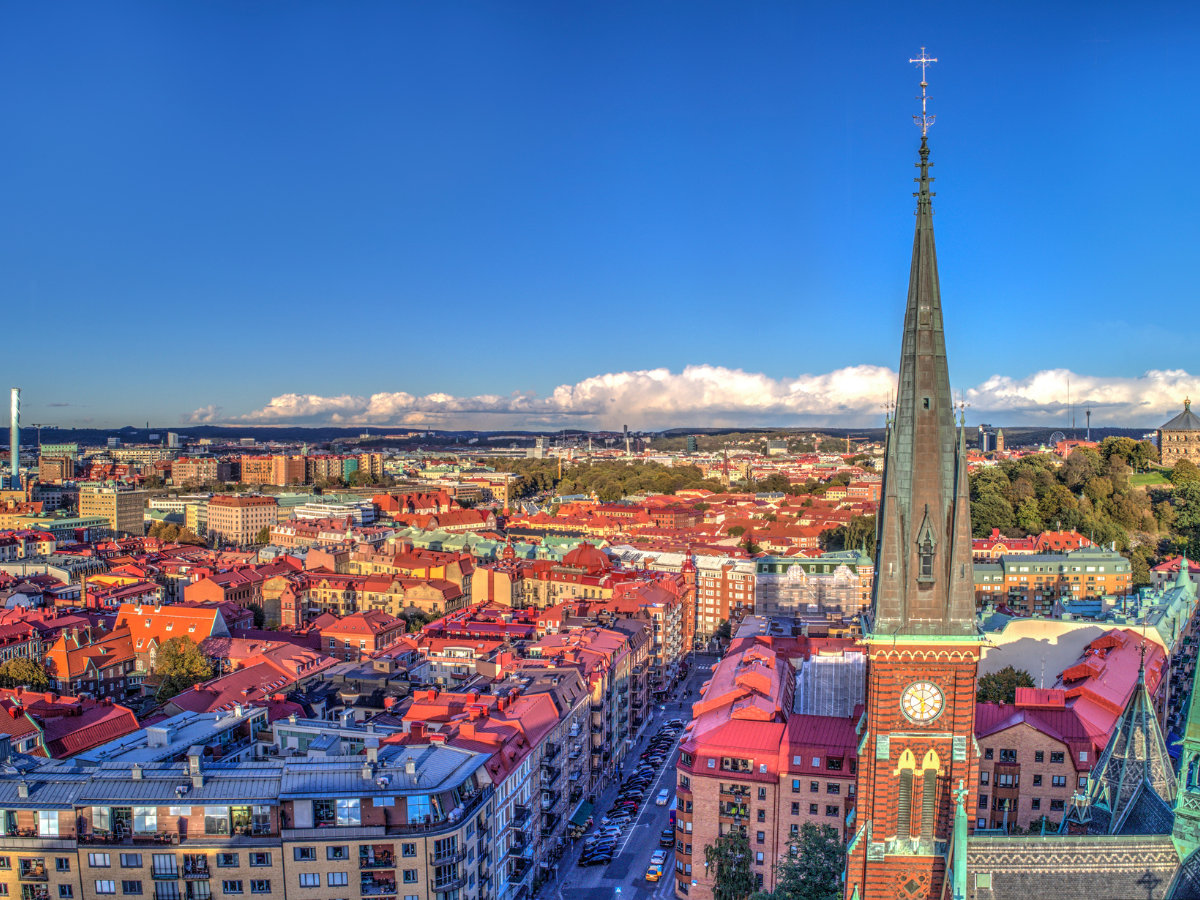
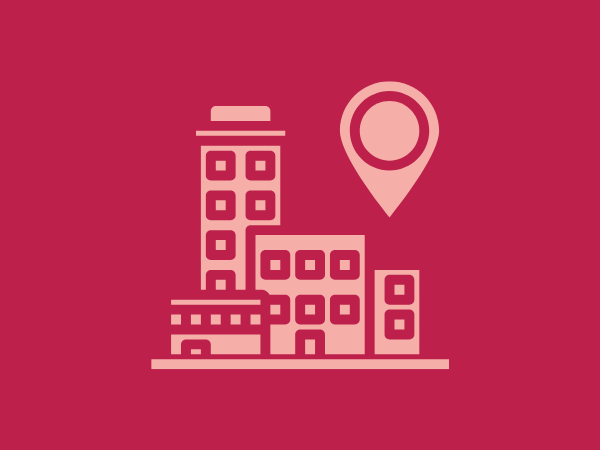
MOSAIC Challenge
Urban mobility accounts for 40 % of all CO2 emissions from road transport and up to 70% of other pollutants from transport.
Gothenburg, alongside 111 other European cities, has committed to becoming climate-neutral, and the city's new environmental and climate programme aims to reduce its climate impact to “close to zero” by 2030, with a view to reaching a zero footprint as quickly as possible. This means that Gothenburg will need to reduce emissions in its geographical area by at least 10.3% per year and consumption-based emissions by at least 7.6% per year.
The transition to sustainable urban mobility is generally acknowledged as one of the major challenges for the future. With an urban area with around 1 million inhabitants and only 570,000 city dwellers, Gothenburg needs to ensure the mobility of a big number of commuters. The main question MOSAIC focuses on in its co-creation pilot is:
"How can we co-develop inclusive mobility that meets personal needs, is affordable, comfortable and reliable?"
Our goal is to develop solutions with and for citizens, local businesses, and public representatives to support sustainable changes to the way we move around the city. We need solutions where the different players understand each other’s preferences and priorities by working together along the same journey. Successful collaboration will increase our potential to develop creative solutions, think laterally and experiment with “out of the box” ideas.
Together, we will to find concrete solutions to questions such as:
What would make our life better mobility-wise?
What could fit your mobility needs, while also decreasing your carbon footprint?
What would improve the user-friendliness and aesthetics of mobility in the neighborhood?
MOSAIC process
MOSIAC coordinator Stickydot is leading the co-creation process in Gothenburg. We are working closely with the city’s Democracy and Citizen Services department. In addition, the Traffic and Environmental departments are actively involved in the process both as initiators and participants of the 3 teams. Stickydot has regular exchanges with the city to run the pilot. This covers the conceptual and methodological support, the logistical and organisational support as well as being the main contact point for around 40 co-creators involved in the pilot.
With the help of local facilitators, Stickydot is designing and implementing each step of the way. The process started with identifying the right challenge for the co-creation programme and publishing an open call for participants. It then moved on to selecting participants and organising the first meeting participants had between each other – the Gathering. For the next 3 months, Stickydot will be supporting 3 team of co-creators to further develop and prototype their ideas.
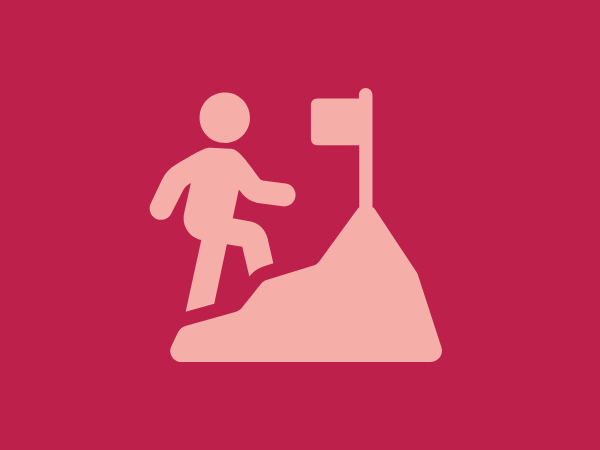
In addition to pilot implementation, MOSAIC team is also running an impact assessment exercise with pilot participants and initiators. Moreover, the experience and knowledge gathered through the pilot is being collected and shared through the project’s Community of Practice, composed of 17 cities.
Milan Pilot
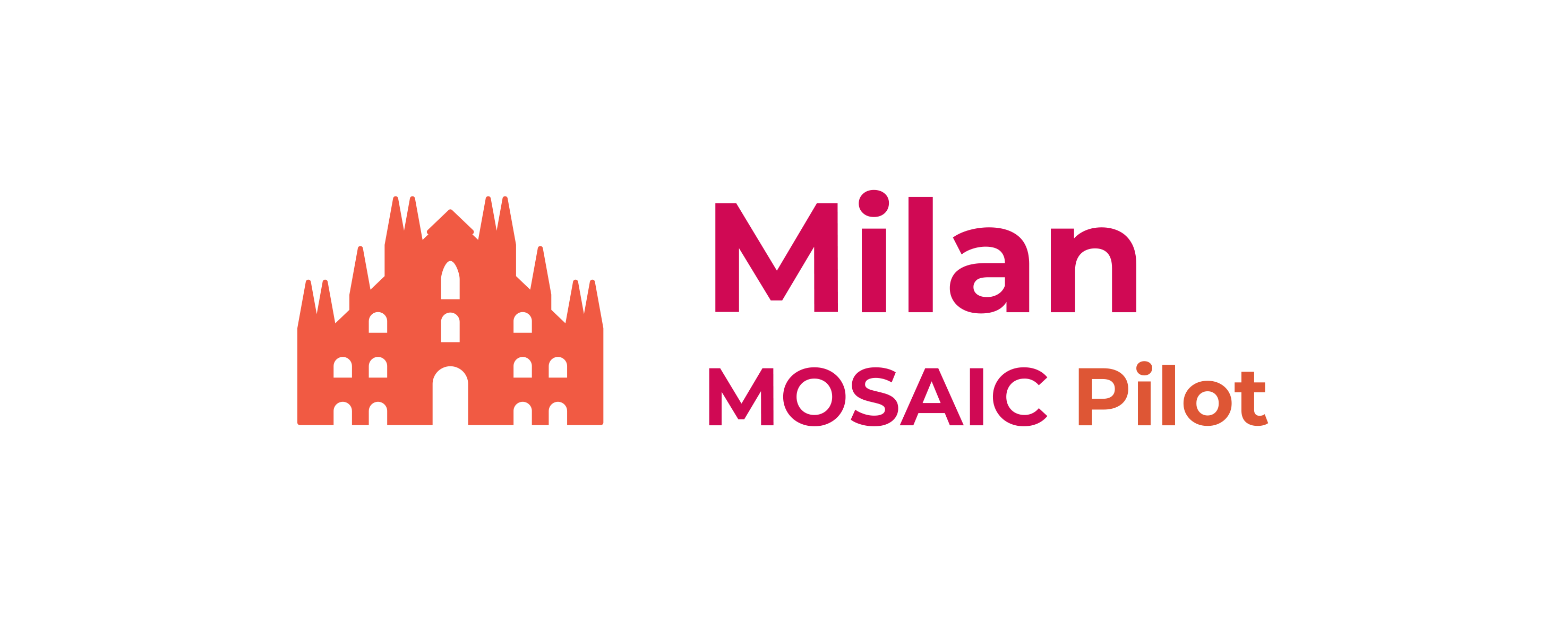
About the city
Milan is a global city of culture, research and innovation, design, industry, sport. At the North of Italy and at the center of the contemporary, dynamic, economic life, it lies in the contact zone between the high and low plains of the Po river, geographical position that affect its climate and air stagnation. Born under the sign of a centrality, both physical and functional, the city expresses an ancient craft tradition, supported by solid financial foundations and a lively entrepreneurial spirit. According to the studies on the world city networks, which establish a hierarchy based on the ability of cities to connect with others through the exchange of information, people, goods and intangible services, in 2020 Milan was ranked among the top 20 cities in the world. With a population of just under 1,400,000 inhabitants, it is profoundly influenced by the creation and dissemination of technical and organisational innovation, the production of culture and information through its seven universities and academies, its press, its artistic institutions, and its large publisher tradition.
Over the last two decades, many efforts have been made to make of Milan a smart-city: from the creation of traffic-restricted zones and the strengthening of public transport to the development of shared transportation systems such as car-sharing and bike-sharing; from the expansion of green areas to the extension of bicycle and pedestrian zones. Still, it remains an environmental pollution problem that is far from being solved.
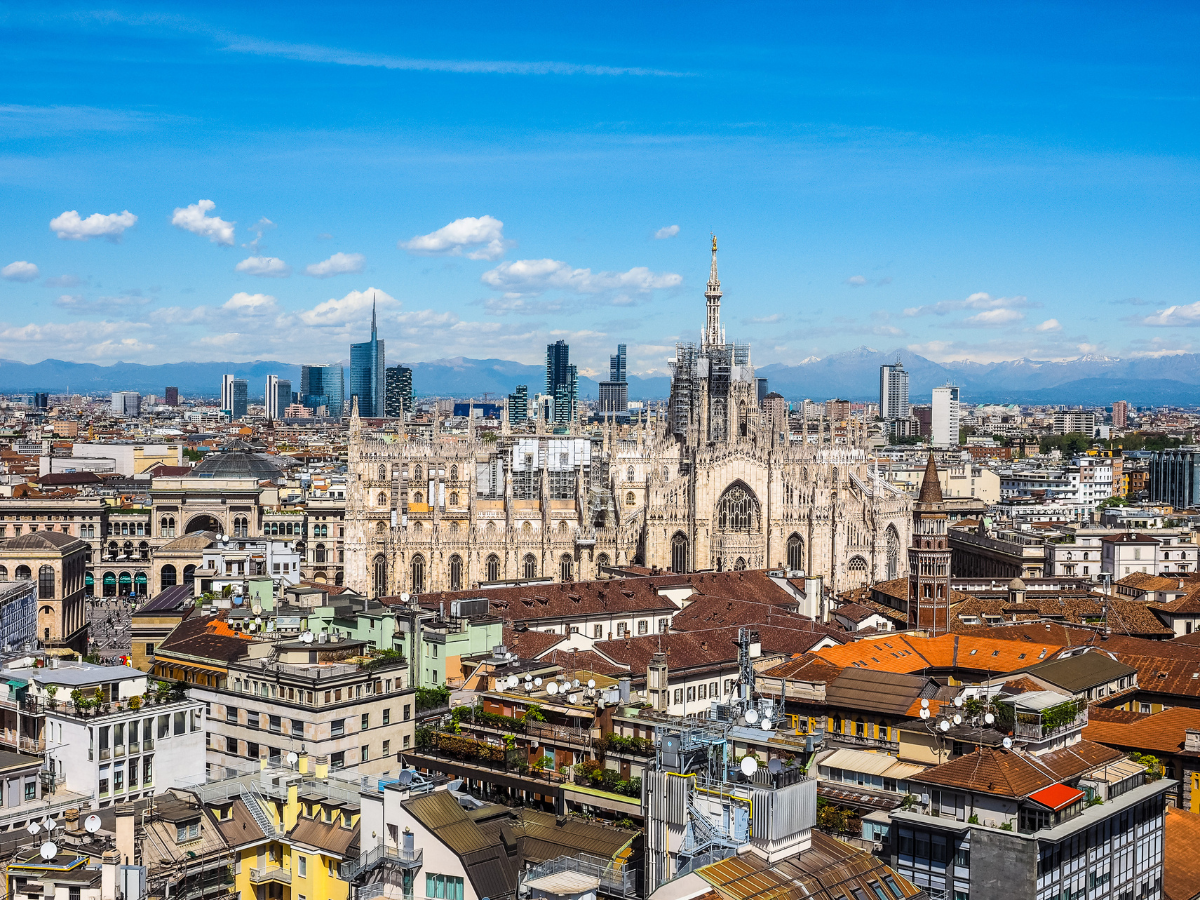

MOSAIC Challenge
Air pollution is one of the most critical environmental problems in Milan, with important repercussions on the health of inhabitants and the environment. For this reason, improving Milan's air quality is a priority objective of the city administration.
Measured data show that concentrations of harmful elements such as nitrogen dioxide (NO2), atmospheric particulate matter (PM10 and PM2.5) and ozone (O3) are high in the metropolitan area and exceed the values set by European regulations and World Health Organisation guidelines.
Ensuring that access to information is as immediate and up-to-date as possible so that citizens can adopt appropriate lifestyles and tools is the challenge identified by the Giannino Bassetti Foundation, with the support of the Municipality of Milan, in the MOSAIC project.
MOSAIC process
The MOSAIC route is divided into three main stages, fairly involving all the members of the quadruple helix innovation ecosystem - a company, citizens or citizens’ groups, research organisation and public authorities.
- The Gathering: this is the founding moment of the process, during which participants get to know each other, share the meaning of the challenge and the data from which to start, discuss problems and opportunities for joint work, and form the teams that will develop work proposals. Stages and working methods are established. In Milan, the meeting took place on the 3rd of March 2023.
- Definition of projects: in the following weeks of March, the teams consolidated their ideas and proposals for practical solutions ("objects" or "services"), through remote or face-to-face work, according to the modalities chosen by that the groups.
- Concept and prototype: the selected groups are working with the support of FGB facilitators and municipal staff, who are organising 2/3 workshops over the next 3 months to discuss emerging problems and opportunities. The objective is to ensure that the solutions to the identified environmental and health problem are not only innovative, but have added value for all participating stakeholders and the city as a whole. The result will be a prototype product or service for those who live and work in town.

MOSAIC Pilot - InformAria
Milan has been facing poor air quality for decades, which has become a sensitive issue for the citizens and a key challenge for the City. Access to data and information on air quality is a prerequisite to openly engage local stakeholders in building a collective response to air pollution.
Starting from this reflection, Fondazione Giannino Bassetti, together with the Direction Green and Environment of the Municipality of Milan, decided to focus the MOSAIC pilot in Milan on the co-design of technological tools to support residents and city users of Milan in making informed decisions related to air quality in the city (e.g., choosing the best days for outdoor sports activities). In line with this challenge, the Milan pilot of MOSAIC was called InformAria.
Learn more about the process from the voices of the quadruple-helix participants and organisers.
